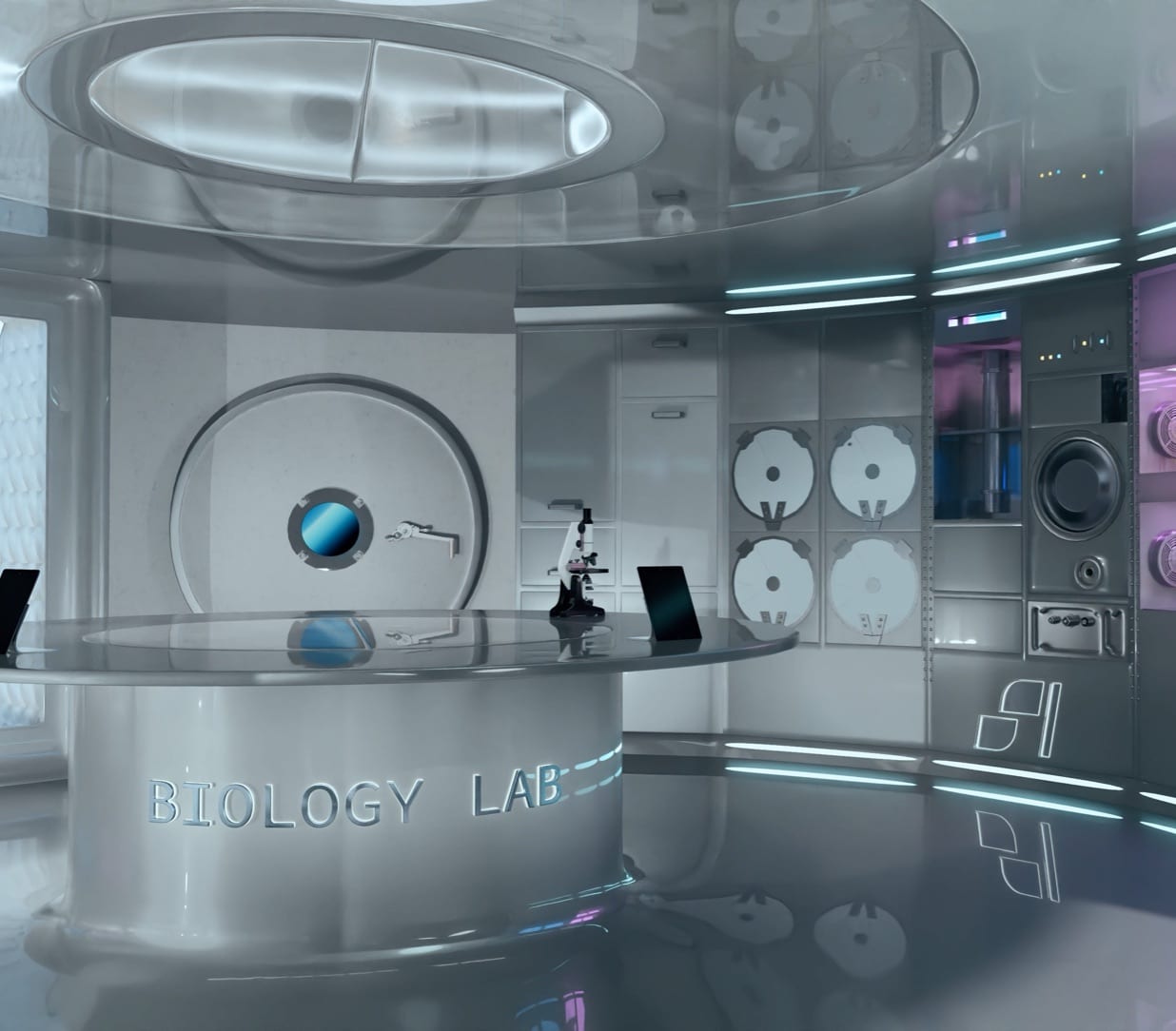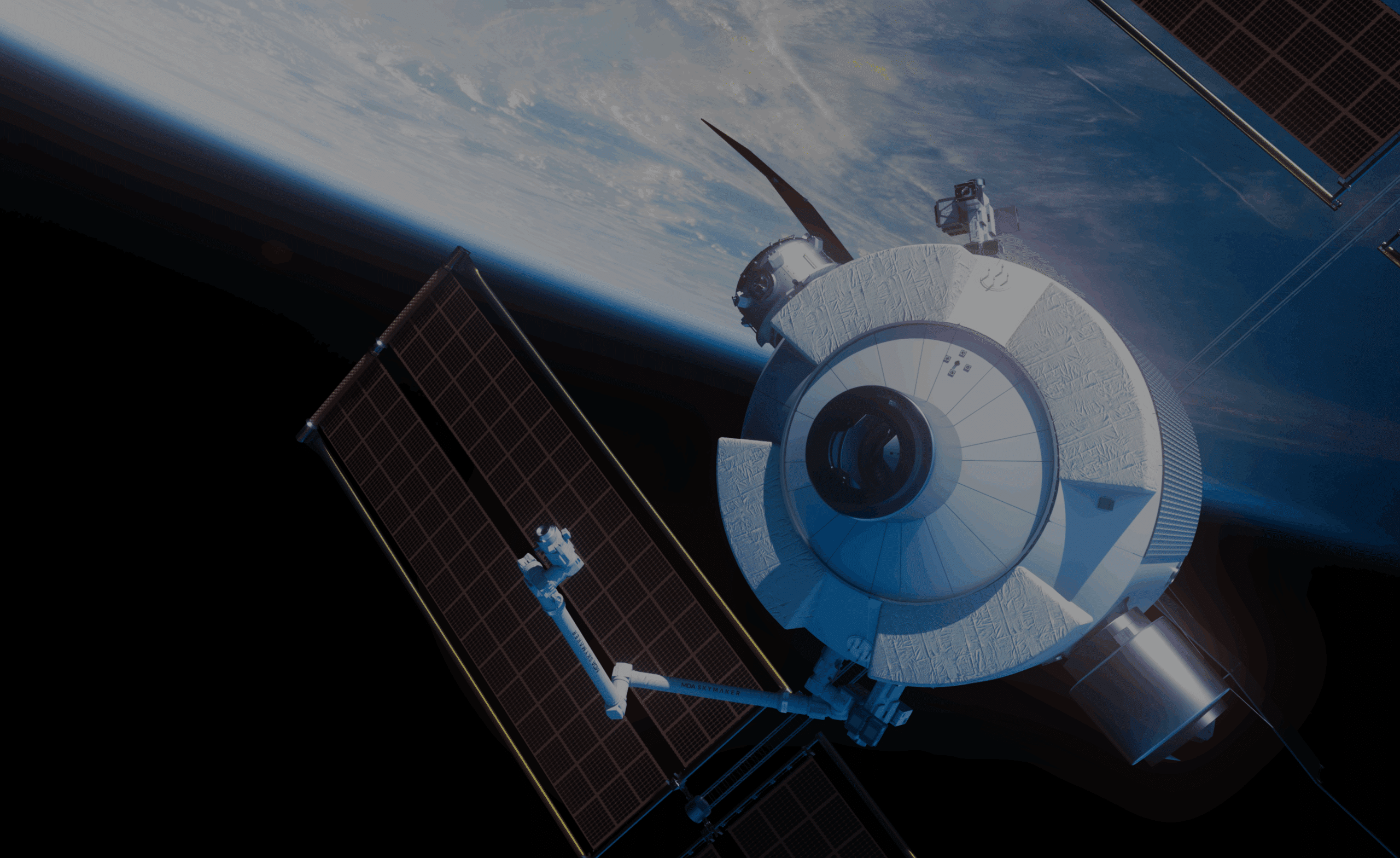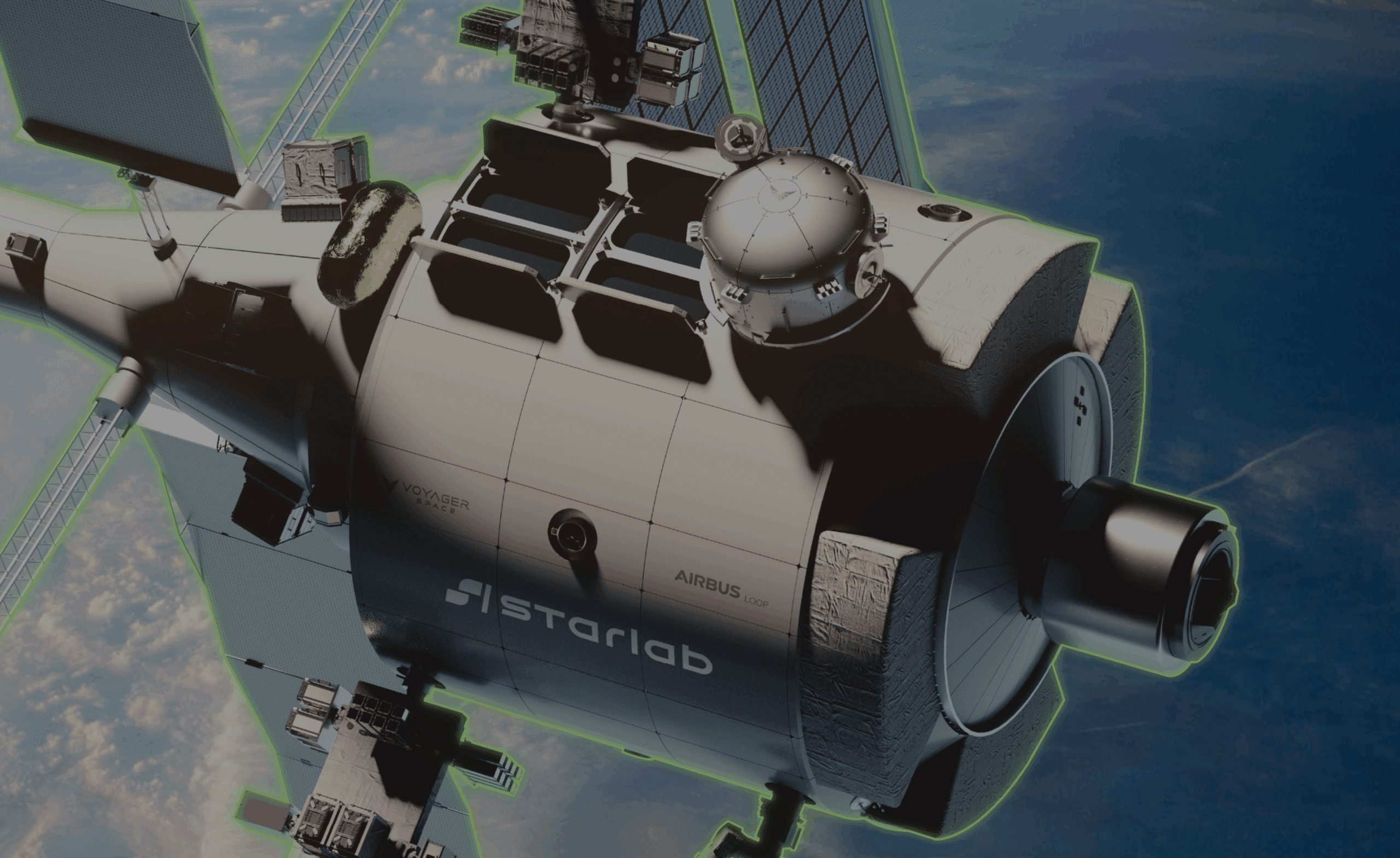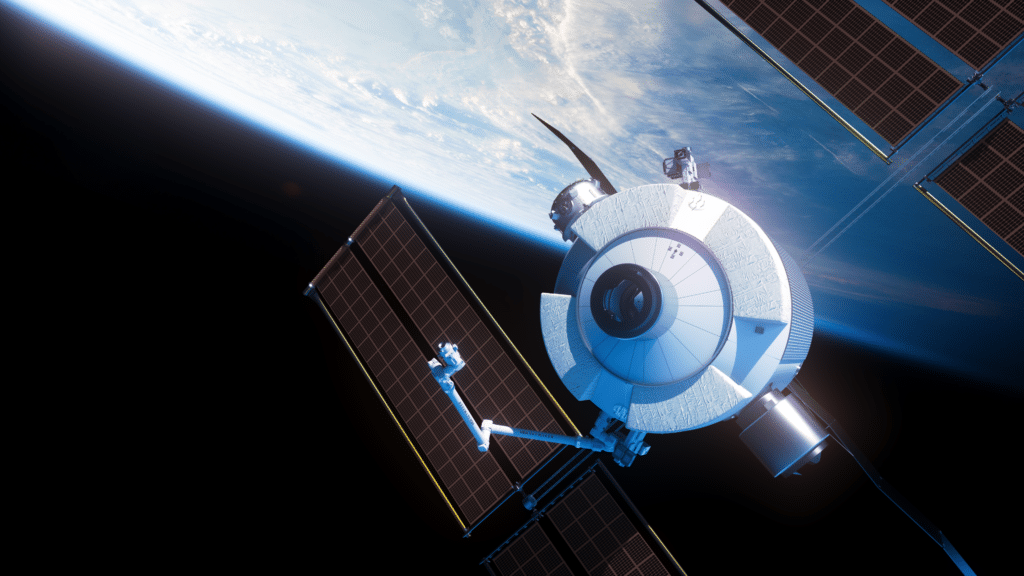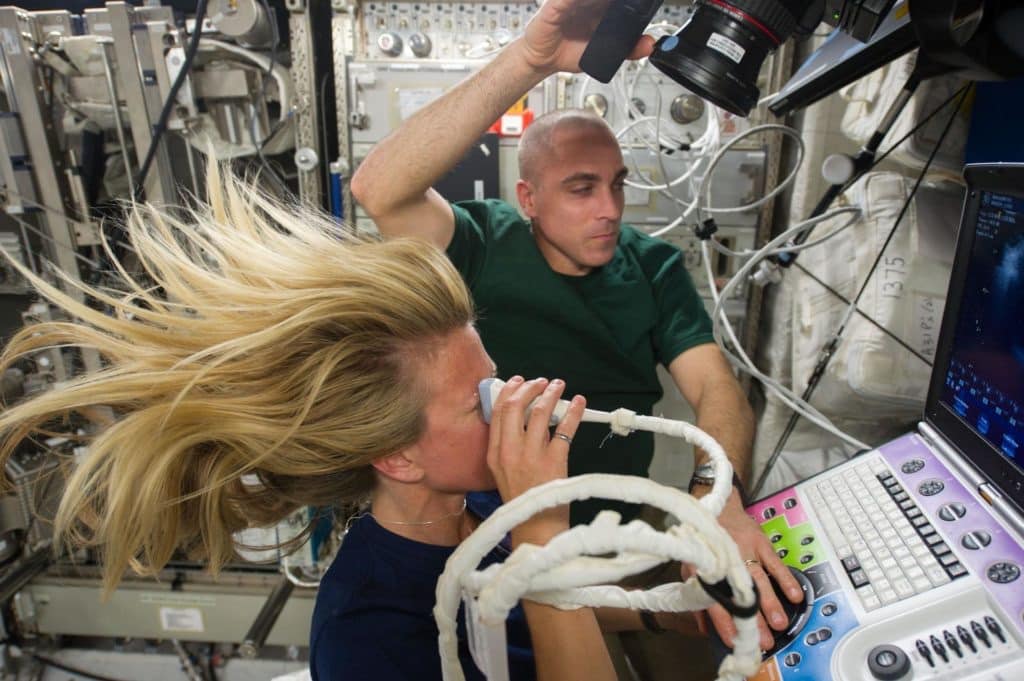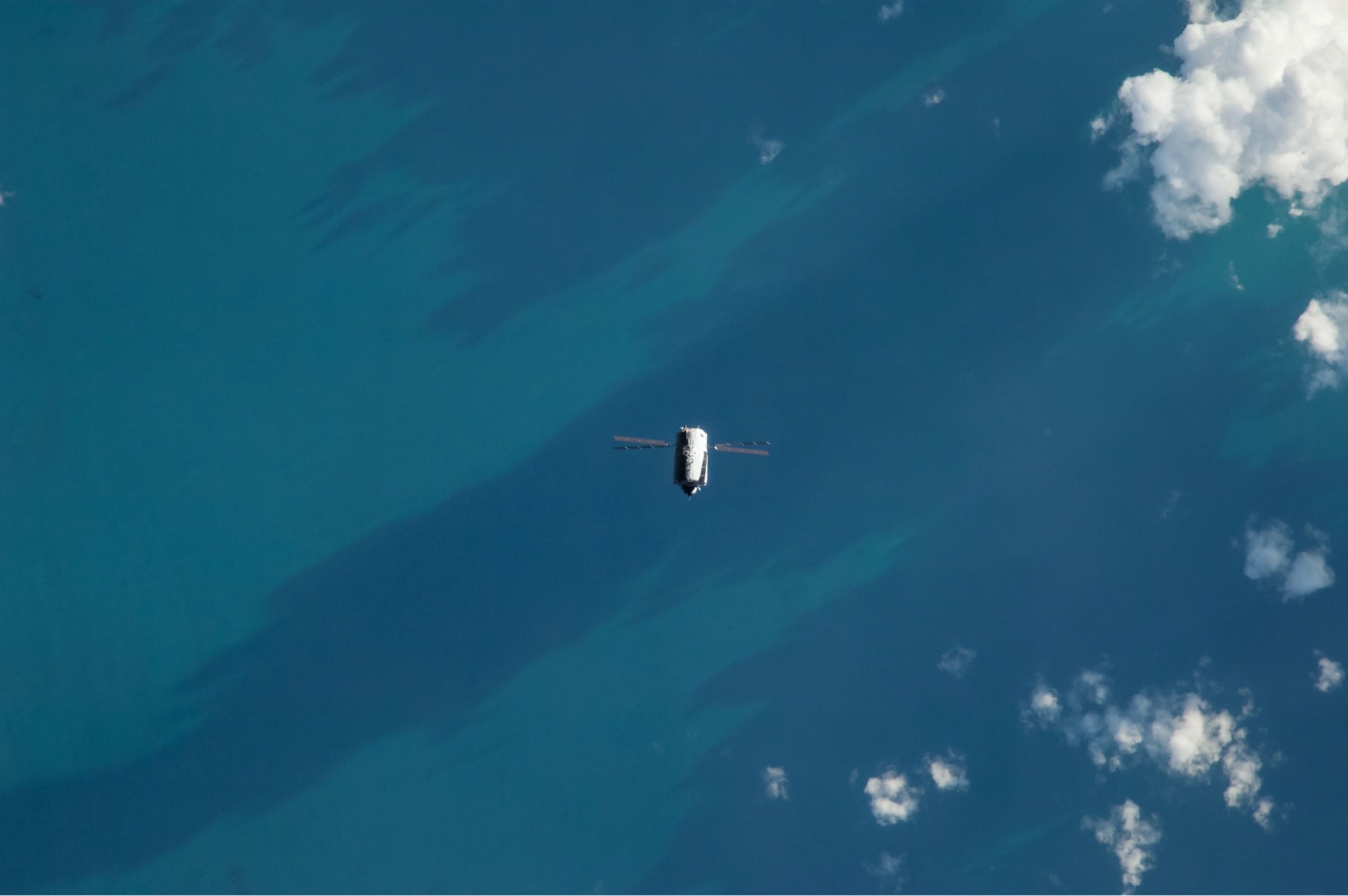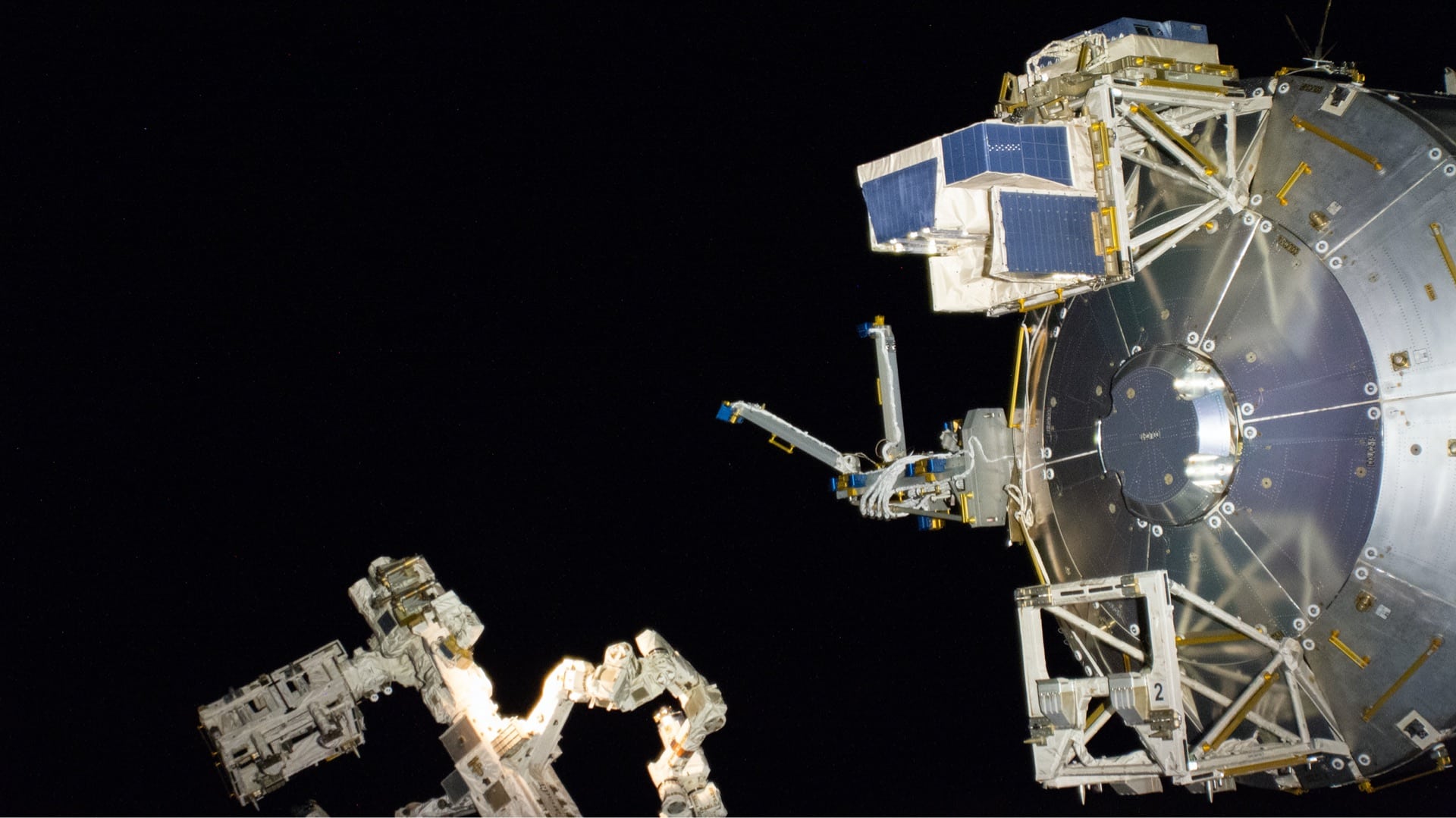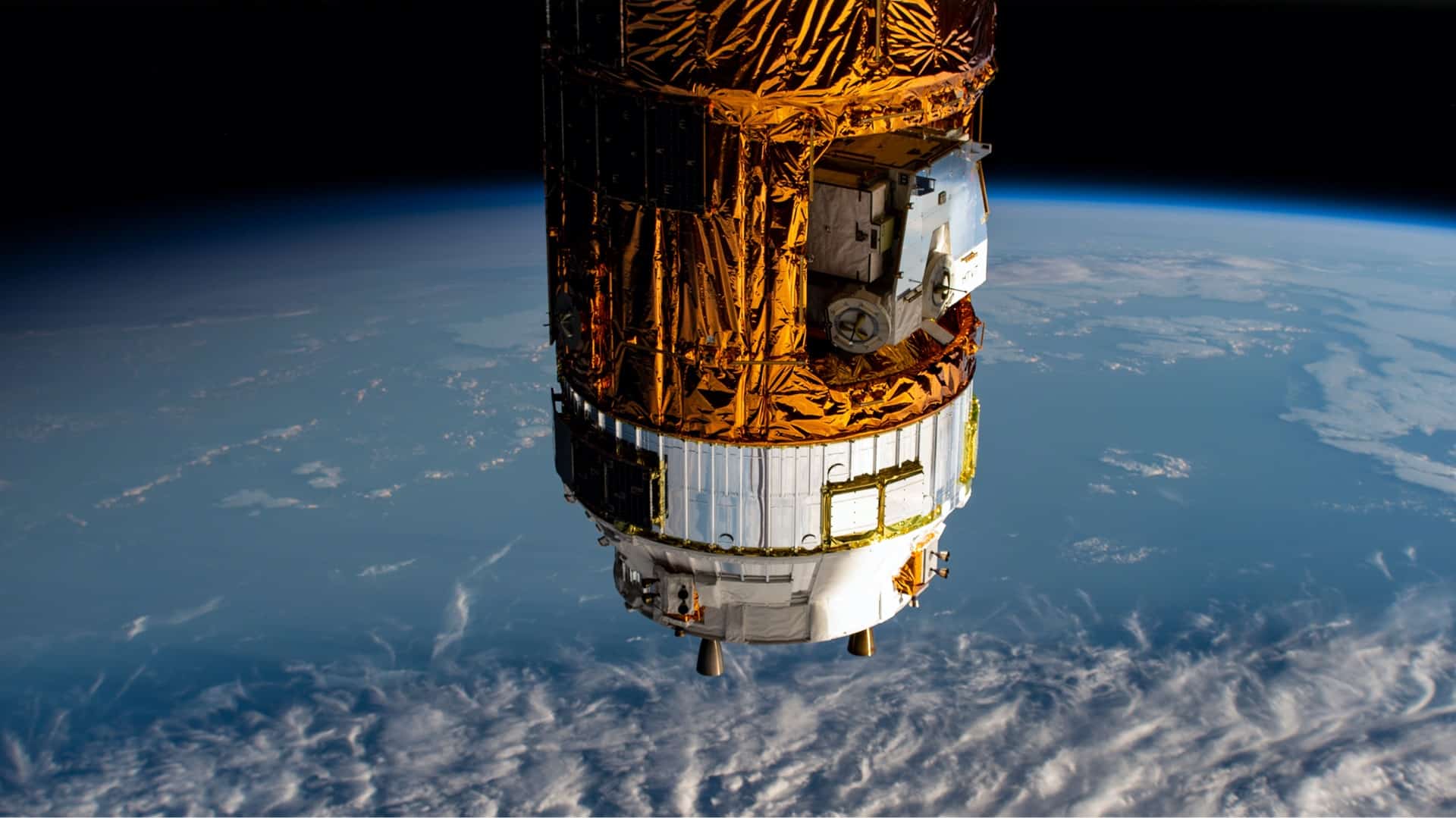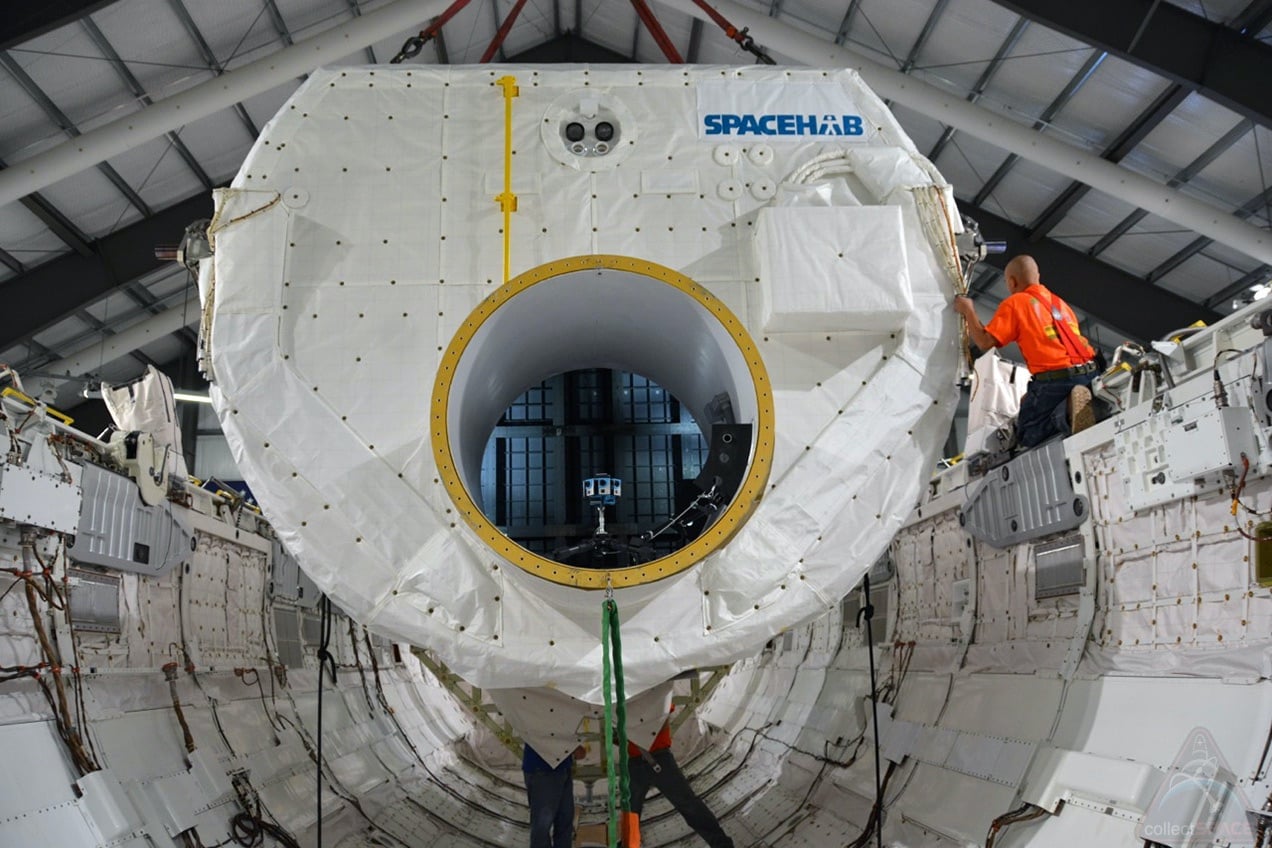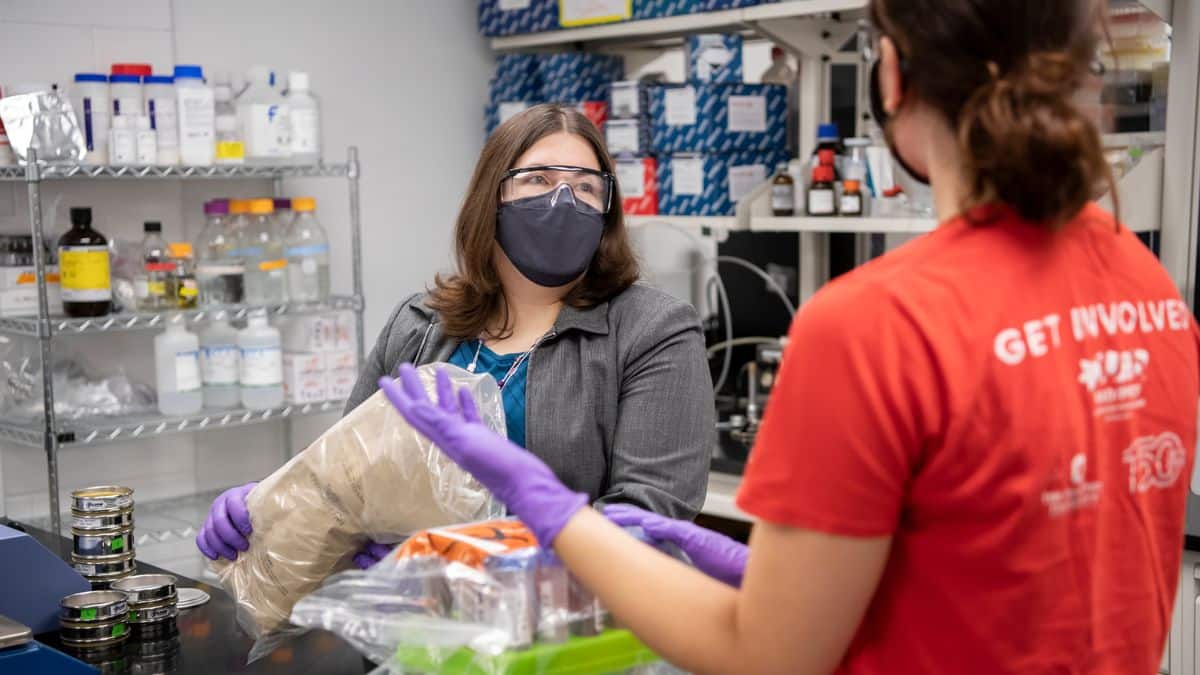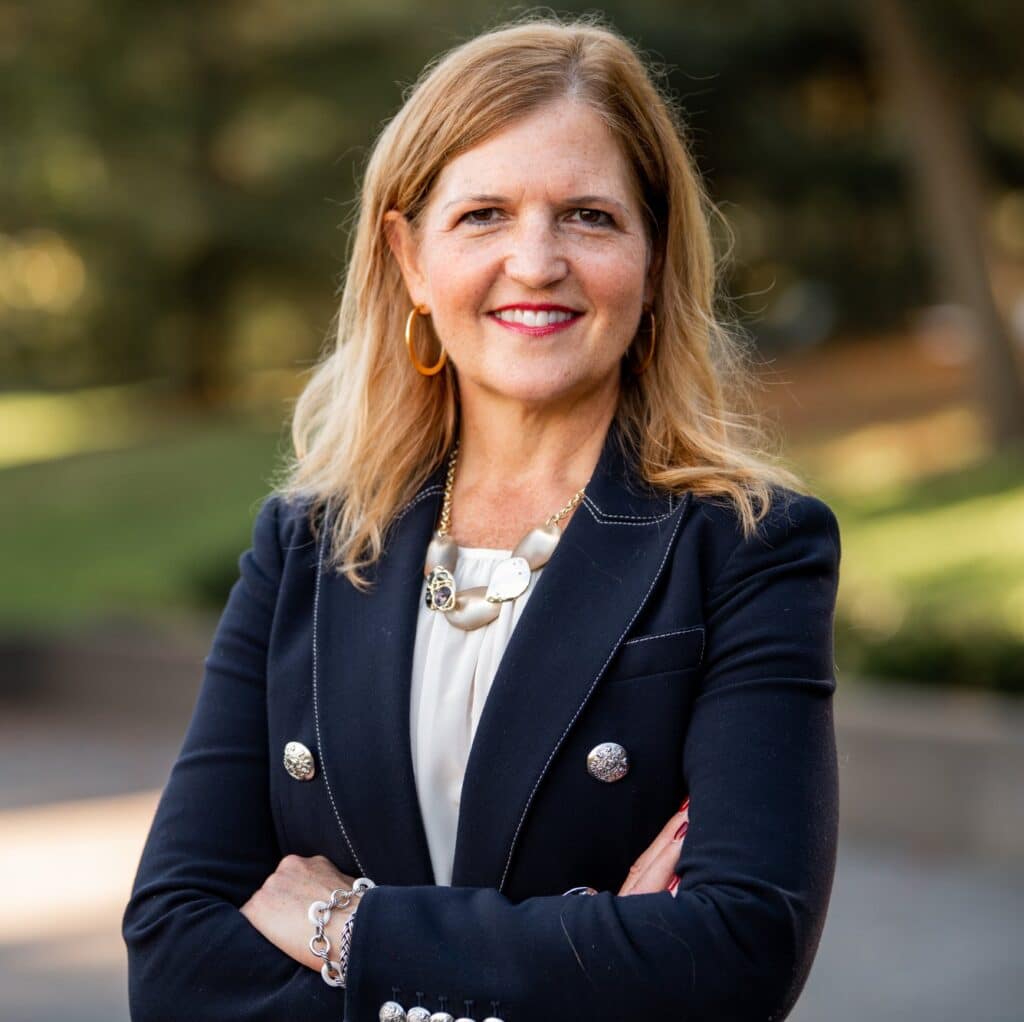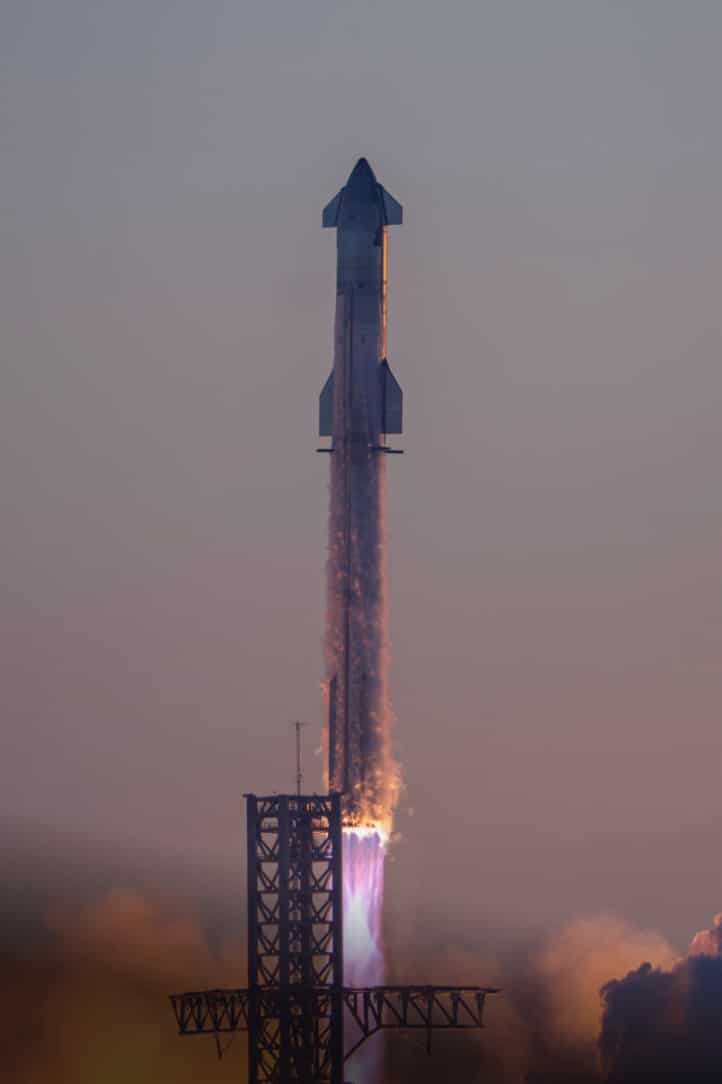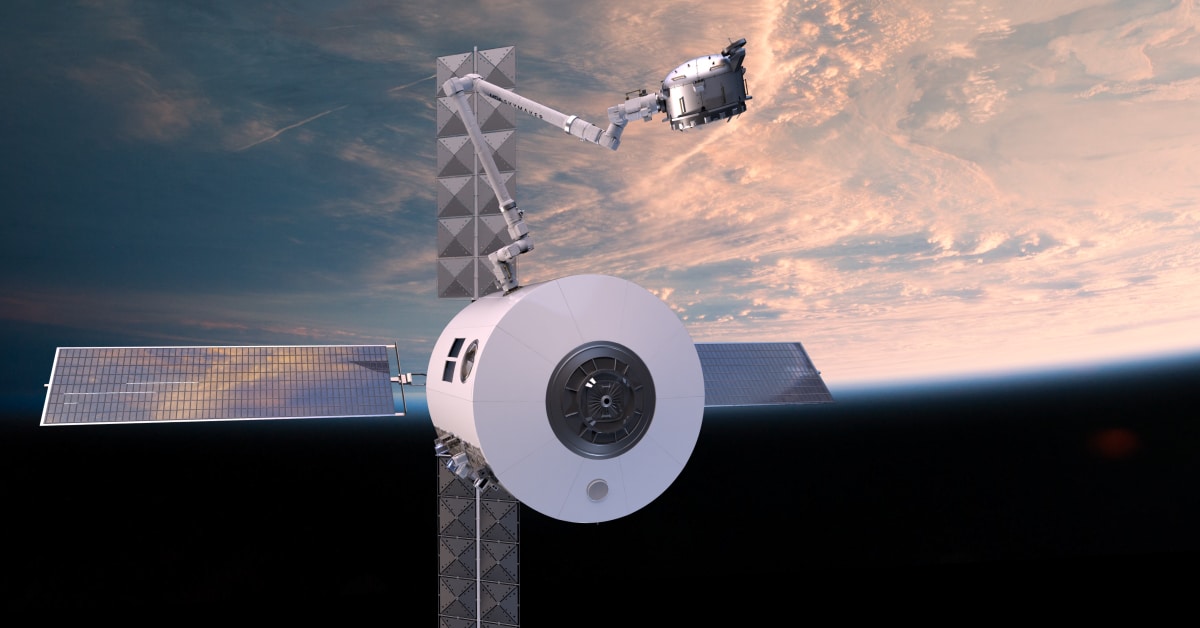
Microgravity,
Amplified
Creating a digital twin of Starlab, Palantir will simulate scenarios to optimize resources, energy usage, and performance. AI will monitor real-time data to identify issues or anomalies.
AI algorithms will analyze sensor and equipment data to predict when maintenance is needed, extending the lifespan of critical components and improving station operations.
Digital twins will offer a comprehensive view of Starlab’s resources and optimize allocation. AI will analyze air quality, water supply, energy consumption and more based on demand and usage patterns.
Data analytics will optimize Starlab’s business and payload models. Ground Predictive Processing will model the microgravity environment to enhance research and experimentation pre-launch and post-return.
Starlab will integrate AI and the digital twin to optimize mission planning, trajectory calculations, and resource allocation for upcoming Starlab missions.
Should critical incidents arise, AI-powered systems will quickly assess situations, and provide real-time response recommendations while coordinating communication among crew members and ground control.

Our
Mission

Starlab Space is a US-led global joint venture and partner network that is ensuring a continued human presence in low-Earth orbit and dedicated to providing a seamless transition of microgravity research from the International Space Station into the new commercial space station era.
We firmly believe in space as a tool for transformation, one that can exponentially improve life on Earth.

Our Global
Network
Team
Marshall Smith is CEO of Starlab Space Stations. He is responsible for guiding Starlab’s vision, strategy, operations and sustainable success, representing its mission and interests to stakeholders worldwide. Smith brings a wealth of experience designing and building complex, human-rated space systems, as well as formulating deep space architectures, and developing human and robotic space systems and multi-billion dollar launch vehicles.
Smith was previously the president of Voyager Technologies’ Space Solutions business segment, where he led the strategic, operational and financial performance of the business segment, aligning company goals and stakeholder expectations. Smith previously served as chief technology officer at Voyager, leading technical strategy, as well as vice president of Exploration, supporting Nanoracks, which was acquired in 2021. There he oversaw commercial space station development, autonomous outpost platforms, support systems and airlocks.
Prior to joining Voyager in 2021, Smith served 37 years at NASA, where he concluded his career as the deputy associate administrator for Systems Engineering & Integration at NASA Headquarters. During his tenure, he held various leadership roles, including director for Human Lunar Exploration Programs and director for Cross-Program Systems Integration/Exploration Systems. Smith led several initiatives that integrated innovative commercial partnerships into NASA’s deep-space exploration programs, including the Human Landing System.
Smith is the recipient of the NASA Systems Engineering Excellence of the Year Award, the NASA Outstanding Leadership Medal and the NASA Exceptional Service Medal. He earned a bachelor’s degree in electrical and computer engineering from the University of Tennessee, Knoxville and master’s degrees in electrical engineering from Virginia Tech.
Tom served as the 20th General Counsel of the Department of the Air Force. In that role, while leading 2,600 attorneys, he also led an interdisciplinary team to draft, advocate for, and then implement the legislation creating the Space Force. Upon the birth of the U.S. Space Force, he simultaneously became the first General Counsel for the U.S. Space Force.
Most recently, Tom was the Chief Legal Officer and General Counsel of Voyager Space. Prior to Voyager Space and his civilian service with the U.S. Air and Space Forces, Tom retired as an Army major general. He served multiple combat tours advising coalition and joint task force commanders in Iraq and Afghanistan, and he was awarded the Bronze Star with two oak leaf clusters. A graduate of West Point and the University of Pennsylvania School of Law, he also has extensive litigation experience, and has experience serving on Boards of Directors.
Mohit Sharma spent more than 15 years at Airbus, last serving as the Head of Mergers and Acquisitions Finance for Airbus Defence and Space. With experience in finance, mergers and acquisitions, fundraising (equity, debt etc.), Sharma drove international cooperation and partnerships for Airbus, developing new and innovative businesses and positioning them for rapid growth – including, most notably, the NewSpace Satellite Constellation Venture OneWeb.
An IT engineer trained at Cochin University of Science and Technology with a dual-degree MBA (ESCP Business School and Asian Institute of Technology), he has worked in Asia, the United States and Europe and began his professional career at the United Nations and the International Criminal Court prior to joining Airbus.
Brad Henderson is the Chief Commercial Officer at Starlab Space. In this role, Brad is responsible for overseeing the business strategy, market generation, and revenue management of all commercial aspects of Starlab Space across its international footprint. He is focused on company strategy, sales and marketing, customer engagement and relationships, business development, and market intelligence.
Prior to joining Starlab, Henderson served as the Vice President of Space Habitation at Sierra Space, where he led space station development efforts, identified commercial space station uses, collaborated with non-traditional space industries, and developed commercial facilities and systems. Additionally, he served as the Habitation product line manager for Sierra Space’s LIFE™ habitat. Henderson also spent nearly three years at Sierra Nevada Corporation where he was focused on its NASA portfolio and eventually helped develop the business approach for Sierra Space. NASA programs he supported include: NextSTEP-2 inflatable habitat program, Mars Transit Vehicle, Lunar Surface habitat, Orbital Outpost, Human Landing systems logistics vehicle, and other programs.
Brad has extensive leadership experience in the military. He served as a Systems Engineer Technical Advisor on behalf of the Air Force Tactical Exploitation of National Capabilities (AFTENCAP) and 20 years as a U.S. Special Forces Green Beret serving as a senior technical and communications Subject Matter Expert. His roles of responsibility in the Special Forces included team leadership, training, diplomatic and cultural relations, organization, and advising to foreign governments. Brad earned his bachelor’s degree in political science and government from the University of Northern Colorado and an MBA from Colorado Technical University.
At Starlab Space, Paul serves as the Chief Procurement Officer and is responsible for procurement, contracting, and supplier management. Additionally, Paul Schauer is the Executive Vice President for Integrated Operations at Voyager Space, responsible for aligning systems, processes, and people to the company’s strategic goals. Prior to Starlab, he spent over 25 years in the government contracting world, beginning as an Air Force Civilian contracting officer where he built and executed acquisition strategies for systems ranging from aircraft to spy satellites. His civil service career culminated as a GG-15 level executive responsible for the contracting team acquiring the nation’s imagery intelligence satellite systems.
Paul then joined a small government contractor and successfully scaled the business through two acquisitions, ultimately being acquired by CACI, a major national defense contractor. At CACI he held the positions of Vice President of Contracts for the National & Cyber Solutions Business Group and Vice President, Tactical Solutions Operating Group.
Paul is also co-creator and co-host of the Contracting Officer Podcast, where for over 8 years (and over 1.2 million listens) he has used his background to help professionals from both government and industry understand a little more about how the other side thinks.
John Fisher is the Chief Operating Officer and Director of Engineering at Starlab Space where he is responsible for the engineering development of our NASA-backed commercial space station. Combining engineering expertise with strategic leadership, John ensures seamless operations while guiding cross-functional teams toward the ambitious goal of transforming space habitation.
Prior to joining Starlab, John held senior leadership and engineering positions at Nanoracks, MDA, General Dynamics and L3 Harris, where he managed complex, high-value projects in robotics, space operations, and defense technology. With over 30 years of experience, John’s career includes distinguished service as a Lieutenant Colonel in the Canadian Armed Forces, where he held command positions and also deployed overseas.
John holds a Bachelor of Science in Mechanical Engineering from the University of Calgary, graduate courses in business administration, is a licensed Professional Engineer, and a certified commercial pilot. Known for his ability to navigate complex challenges and inspire teams, John continues to push the boundaries of space technology development and innovation. His commitment to operational excellence and collaboration is central to Starlab’s success.
Marshall Smith is CEO of Starlab Space Stations. He is responsible for guiding Starlab’s vision, strategy, operations and sustainable success, representing its mission and interests to stakeholders worldwide. Smith brings a wealth of experience designing and building complex, human-rated space systems, as well as formulating deep space architectures, and developing human and robotic space systems and multi-billion dollar launch vehicles.
Smith was previously the president of Voyager Technologies’ Space Solutions business segment, where he led the strategic, operational and financial performance of the business segment, aligning company goals and stakeholder expectations. Smith previously served as chief technology officer at Voyager, leading technical strategy, as well as vice president of Exploration, supporting Nanoracks, which was acquired in 2021. There he oversaw commercial space station development, autonomous outpost platforms, support systems and airlocks.
Prior to joining Voyager in 2021, Smith served 37 years at NASA, where he concluded his career as the deputy associate administrator for Systems Engineering & Integration at NASA Headquarters. During his tenure, he held various leadership roles, including director for Human Lunar Exploration Programs and director for Cross-Program Systems Integration/Exploration Systems. Smith led several initiatives that integrated innovative commercial partnerships into NASA’s deep-space exploration programs, including the Human Landing System.
Smith is the recipient of the NASA Systems Engineering Excellence of the Year Award, the NASA Outstanding Leadership Medal and the NASA Exceptional Service Medal. He earned a bachelor’s degree in electrical and computer engineering from the University of Tennessee, Knoxville and master’s degrees in electrical engineering from Virginia Tech.
Jim Bridenstine was confirmed by the U.S. Senate as the 13th Administrator of the National Aeronautics and Space Administration on April 23, 2018. As administrator, he led NASA in advancing American aeronautic, science, and space exploration objectives.
Under Bridenstine’s leadership, NASA launched its new human lunar exploration mission, the Artemis program. As announced in March 2019, the Artemis program will land the first woman and the next man on the surface of the Moon by 2024, the first human landing since the end of NASA’s Apollo missions in 1972. Through the Artemis program, NASA is developing the Orion crew capsule and the Space Launch System, the most powerful rocket ever built. These state-of-the-art systems will help build the Gateway, a lunar orbiting space station that will give American astronauts more access to the surface of the Moon than ever before. All lunar exploration efforts under Artemis are designed to prove our technology and perfect our capabilities to live and work on a different world in preparation for a future crewed mission to Mars.
Bridenstine has managed the continued commercial resupply of the International Space Station and has led agency efforts to partner with American businesses on the Commercial Crew Program. This program seeks to once again launch American astronauts on American rockets from American soil, something not done since the end of the Shuttle program in 2011. Additionally, Bridenstine established the Commercial Lunar Payload Services Program to partner with private enterprise in landing rovers on the lunar surface. These rovers will contain tools and science experiments in preparation for the arrival of American astronauts.
During Bridenstine’s tenure, the agency has reinforced aeronautic development of the X-59, a quiet supersonic aircraft, and the X-57, the agency’s first all-electric airplane. He has also backed NASA’s aeronautical innovators to develop the Unmanned Aircraft Systems Traffic Management to facilitate the safe use of drones for commercial enterprise and in everyday life. The agency’s dynamic science portfolio under Bridenstine includes a life-seeking Mars rover scheduled to launch in July 2020, enhancing the nation’s fleet of Earth-observing satellites and final preparations of the James Webb Space Telescope.
Prior to serving at NASA, Bridenstine was elected in 2012 to represent Oklahoma’s First Congressional District in the U.S. House of Representatives, where he served on the Armed Services Committee and the Science, Space and Technology Committee.
Bridenstine’s career in federal service began in 1998 as a pilot in the U.S. Navy, flying the E-2C Hawkeye off the USS Abraham Lincoln aircraft carrier. It was there that he flew combat missions in Iraq and Afghanistan and accrued most of his 1,900 flight hours and 333 arrested landings on an aircraft carrier. He later moved to the F-18 Hornet and flew at the Naval Strike and Air Warfare Center, the parent command to TOPGUN.
After transitioning from active duty to the U.S. Navy Reserve, Bridenstine returned to Tulsa, Oklahoma, to be the executive director of the Tulsa Air and Space Museum & Planetarium.
Bridenstine completed a triple major at Rice University and earned his MBA at Cornell University. He and his wife, Michelle, have three children.
Debra Facktor leads the Airbus U.S. Space Systems line of business, with a focus on small satellites produced for commercial and government customers at the company’s manufacturing facility in Merritt Island, Florida, and on space exploration activities in the U.S. Facktor also served on the board of the Airbus OneWeb Satellites joint venture prior to its recent acquisition by Airbus U.S.
Before joining Airbus U.S., Facktor was Vice President and General Manager of Strategic Operations for Ball Aerospace, leading the company’s Washington DC operations, strategic development, and marketing and communications.
Facktor received her bachelor’s and master’s degrees in aerospace engineering from the University of Michigan and is an alumna of the International Space University summer session program in Strasbourg, France.
Mohamed Denden is Chief Financial Officer for Airbus U.S. Space & Defense, Inc. Denden has been with Airbus for 15 years working in the United States and France and possesses an extensive background in the Aerospace and Defense industry, including leadership roles in Corporate Finance, M&A, Investor Relations, and Supply Chain.
Before joining Airbus, Denden worked at Lockheed Martin, DRS Technologies, and Deloitte. He is a CPA and holds an MBA from the University of Central Florida, and is fluent in several languages.
Dr. Marc Steckling is the Head of Earth Observation, Science and Exploration at Airbus Defence and Space and leads Airbus Space Systems in Germany. Prior to this he was CEO and Chairman of the Board of Tesat-Spacecom GmbH & Co. KG, a subsidiary of Airbus. Steckling worked for the German Aerospace Center (DLR) before he joined Airbus Defence and Space in 1999. He held management positions including Head of Electronic Products Germany and Head of Lean Management. He holds a degree in Aerospace Engineering and a PhD from the University of Berlin.

Careers

Be a Pioneer
Starlab is a state-of-the-art space station designed to facilitate groundbreaking research and innovation.

Get
in Touch
We would love to hear
from you!
95°07’13″W
in Touch

